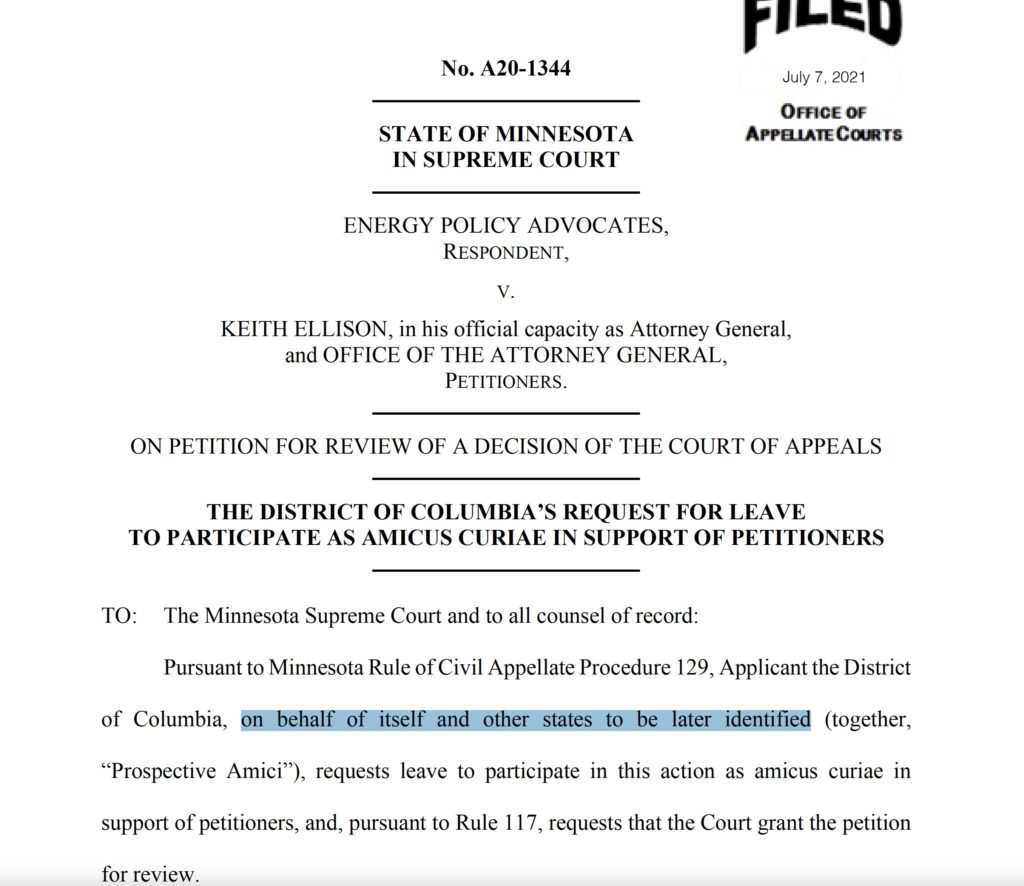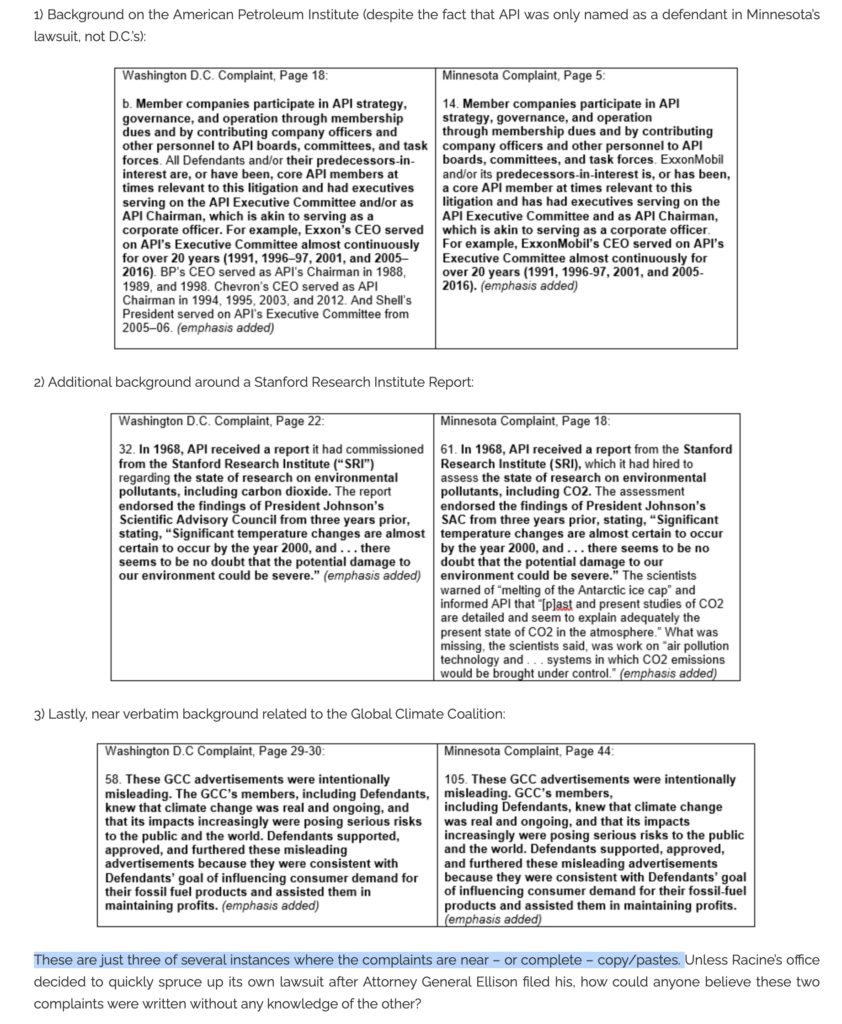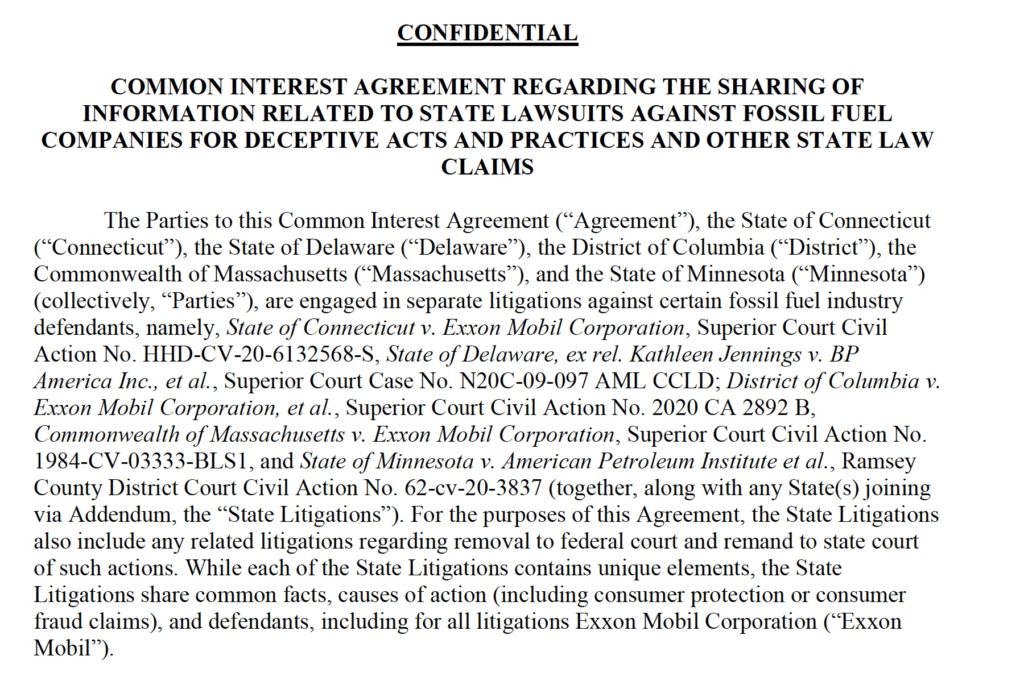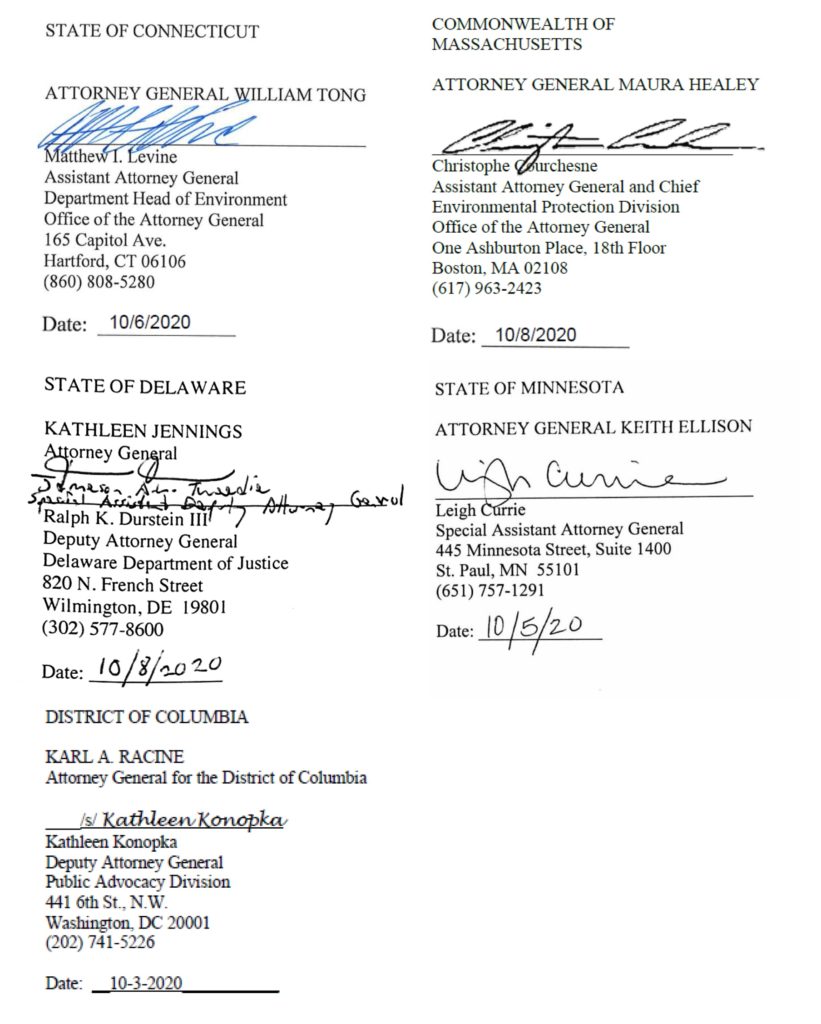The Minnesota State Supreme Court has granted Attorney General Keith Ellison’s petition seeking review of his loss to Energy Policy Advocates at the Court of Appeals this summer. That came in an open records case involving correspondence between AGs pursuing the “climate” agenda in court, the Bloomberg-financed “Special Assistant Attorneys General,” and claims that such records are protected by a common interest exception to waiver of privilege never recognized by the Minnesota legislature or Supreme Court.
CLW sees a spate of parties filed motions in favor of review, and almost uniformly, seeking to argue against releasing these records from Ellison’s office — Minnesota Association for Justice, Minnesota Defense Lawyers Association, Minnesota State Bar Association, League of Minnesota Cities, Association of Minnesota Counties, Minnesota County Attorneys Association, National Association of Manufacturers. Then there is one that really stands out:

This move certainly brings to mind this report of the back-to-back climate suits filed by MN and DC AGs in June 2020, with sections seemingly cut-and-pasted (and oddly so: while DC also goes on about API in near-verbatim fashion, between them, only MN filed against API…).
Despite claims to the contrary, it seems that D.C. and Minnesota’s lawsuits were a coordinated move.
Even though Racine told reporters that he only learned of Minnesota’s lawsuit after it was filed, sections of D.C.’s complaint are eerily similar to the midwestern state’s – which, as a reminder, was announced less than 24 hours prior.
One could argue that this type of climate litigation was trending towards the consumer-focused angle, as evidenced by Massachusetts’s lawsuit filed in October 2019. But that doesn’t explain how entire paragraphs, either word for word or with slight variations, of D.C.’s complaint can also be found in Minnesota’s lawsuit.
Here are three sample side by side comparisons of the complaints:

When asked at his press conference about the back-to-back nature of the suits, presumably before the reporter even knew about the cut-n-paste, DC AG Karl Racine made a somewhat implausible claim to Reuters.

Of course, we recently learned of this subsequent contract affirming the coordination and claiming privilege extending back in time to their joint work on “investigations” — which, one assumes even with politicized use of law enforcement, are in fact conducted prior to filing suit:

…

In his motion asking to be heard on whether Minnesota’s climate-litigation, Bloomberg-related and other such correspondence should be subject to release Racine played any interest in hiding records contradicting his claim about coordination with Minnesota on this matter close to the vest.
Instead, after stating that “Although this case concerns Minnesota law, Prospective Amici’s interests are directly implicated. Prospective Amici have coordinated with Minnesota on numerous issues of great importance,” he cited, well, other matters, specifically opioid litigation and the tobacco litigation from “over 20 years ago” (which the Climate AGs claim is their model) — and, the Supreme Court wouldn’t be against protecting the public from opioids or cigarettes now would it?
But, what about letting the public learn more about AGs taking privately hired attorneys from a major political donor specifically to file these climate suits, as DC did and Minnesota most egregiously has been shown to have done? Thanks to other public records, we now know how MN’s suit came about: it’s not only unseemly but, as Energy Policy Advocates has argued in amicus briefs in federal court, also makes manifest the propriety of federal jurisdiction to handle the cookie-cutter suits exported to the states by an activist based in New York City.
Racine does make allusion to the cases, buried in his numerous cautions. “First, the court of appeals’s decision is disrupting the ability of other state attorneys general to coordinate with Minnesota on legal matters of common interest, depriving other states of Minnesota’s expertise. That could, in turn, hinder the Minnesota Attorney General’s ability to work with other states in multistate litigation efforts to enforce consumer protection laws…”
Ah yes, that matter of the confidentiality agreement (which, despite claiming by its own terms to be common-interest privileged, was released…). A cynic would suggest that DC AG Karl Racine is worried that release of these records emphasize a seemingly gratuitous non-truth to the press about coordination on these matters, about which he preferred to mislead rather than say yes, we’ve been coordinating.
Why the at best slippery and misleading dodge? Was it tied to the largely all-or-nothing jurisdictional claim the AGs are making to stay in state court — and thereby keep their suits alive — that these lawsuits are all purely local affairs and not, as it may seem, some coordinated national matter for the federal courts? Is that why the District of Columbia Attorney General rushed to hire a Minnesota law firm to go to the Minnesota’s State Supreme Court to shield the Minnesota AG’s records about its own climate lawsuit?
